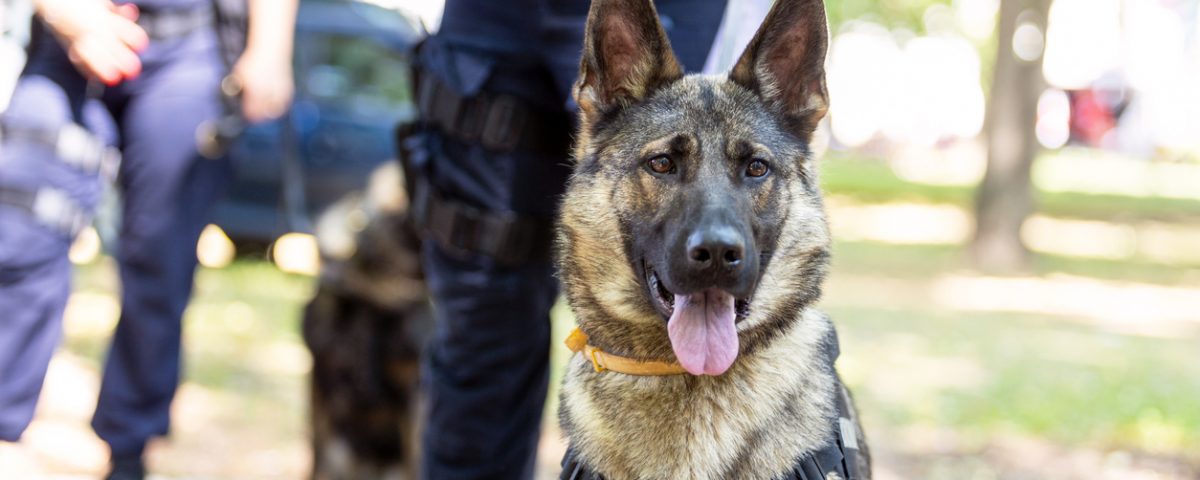Police Liability and the Proper Way to Train a Police K9

How Public Officials Can Help Build Strong Local Communities After a Disaster
April 10, 2023
How School Employees Can Prevent an Active Shooter
April 24, 2023Police Liability and the Proper Way to Train a Police K9
Dogs are an asset to police forces in many ways. However, the presence of canines comes with additional police liability concerns. Proper training goes a long way to minimize the risks, but police departments still require the proper insurance policies to cover any eventuality. Speak with your clients about the unique insurance needs of K9 units to limit financial risk and liability.
What Is Police Liability Insurance?
Your clients may wonder why they need another policy when they already have coverage under their city’s general liability policy. A police liability protection policy is necessary because there is always the risk that an officer will face a claim of negligence, false arrest, or another violation. Lawsuits require significant funds to hire litigation and to fight the claim. These costs don’t even include the cost of potential damages awarded if the suit is lost.
What Is Police K9 Insurance?
Police dogs display courage and a strong sense of smell. Likewise, they also protect their handlers. Police officers train these dogs thoroughly and give their human counterparts important alerts that can save lives. Typically, a policy should include liability coverage for the dog and any handlers who work with it.
Training a law enforcement dog takes a lot of time and effort. Their obedience and skill are crucial for successful operations. The resources that go into training increase the animal’s value. Police K9 insurance covers the value of the dog in the event it dies due to an accident, injury, or sickness.
How Officers Train Police K9s
Proper training makes the difference between a K9 asset and a liability. With the proper techniques and methods, police dogs become dedicated members of the force capable of making a real difference.
Before training begins, you must select the right dog for the job. German shepherds and labrador retrievers are favored breeds due to their work ethic, intelligence, loyalty, and stamina. Training for basic behaviors begins early in the puppy stage. Once the dog reaches a year, it gets matched with its handler and undergoes more intensive training.
Some Ways to Encourage Training
Police officers should make the training fun. Ultimately, if a dog enjoys the experience, it will likely pick it up easier. They also must know their dog. Therefore, officers should reward them with something they enjoy, such as treats, toys, or pets. It is also essential to watch their reactions closely. Thus, they should praise them for any positive behavior changes. Dogs also need time to recharge, so officers should allow them that chance.
Your clients should challenge their dogs. Furthermore, they should slowly increase the difficulty the more their dog learns. They should also be able to spot harmful patterns and break them before they escalate. Additionally, they should know when to schedule breaks to give the dogs rest between sessions. An officer can bond with their dog by working with their natural energy and matching it with the training regimen. Also, it is crucial to stick to the same commands, rewards, and schedule to avoid confusion.
After the initial training period of around 10 weeks, police dogs receive continuous testing and training to stay fit, alert, and ready to work.
Police liability insurance is a critical need for any department, especially those that work with K9s. Discuss the protections offered by these policies with your clients to help them choose the right coverage that gives them the freedom and support they need to do their jobs right.
About PGUI
Professional Governmental Underwriters, LLC., is a full-service risk management company dedicated to assisting public, educational and non-profit entities in the management of their professional liability exposures including educators liability insurance. We are dedicated to providing state-of-the-art professional underwriting management and loss control advisory services on behalf of our designated carriers. For more information, call us toll-free at (800) 586-6502.


